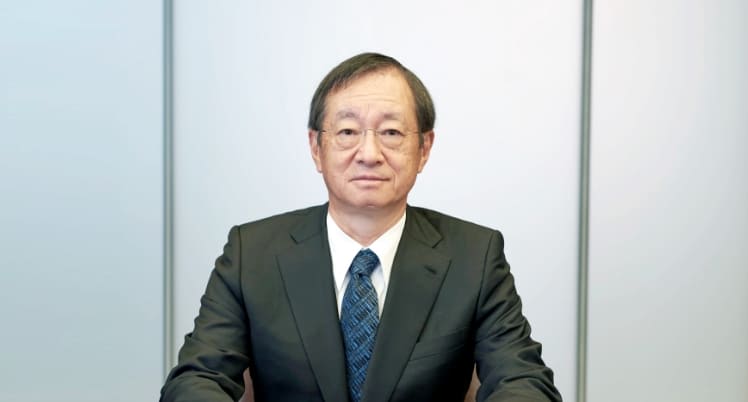Nippon Steel’s wily president key to battle over US Steel

US politicians and unions trying to derail the foreign takeover of United States Steel Corp. will have to defeat a tough negotiator from the other side of the Pacific: Eiji Hashimoto.
The president of Nippon Steel Corp. and architect of its $14.1 billion deal to create the world’s second-largest steel company has built a reputation over the years as a wily executive willing to take on his biggest customers. Before embarking on tough discussions, the 68-year-old is known to swim laps at his local health club to build up physical and mental stamina.
Nippon Steel’s stock has climbed 58% since Hashimoto took the helm in April 2019. During the period, he raised prices for customers and in 2021 even sued Toyota Motor Corp., accusing the world’s largest carmaker of infringing on its patent for a type of steel used for electric motors. Described as tenacious and methodical, Hashimoto rose up in the ranks after spending most of his career focused on marketing and overseas businesses.
“He’s very smart — sharp and quick-witted,” Ryunosuke Shibata, an analyst at SBI Securities Co., said. “He punches numbers and moves things forward logically.”
Nippon Steel will have to clear a series of hurdles before a successful merger, beginning with the United Steelworkers union, which represents 850,000 worker in multiple industries including rubber, chemicals and energy-producing businesses.
“To say we’re disappointed in the announced deal between US Steel and Nippon is an understatement,” the USW said in a statement soon after the bid was announced.
American politicians are also scrutinizing the agreement. Several senators have criticized the deal as harming local jobs and putting national security in jeopardy, and have called for regulators including the Committee on Foreign Investment in the US, or CFIUS, to block it.
Hashimoto joined the predecessor to Nippon Steel in 1979, when he graduated from Hitotsubashi University, one of Japan’s top business schools. He rose through the ranks, managing several departments. In 1988, he earned a masters from Harvard Kennedy School.
Japan’s rapid economic growth in the 1970s and 1980s, and its booming demand for metals for buildings and machines, propelled the company to become the world’s largest steel producer at the time. However, stagnant economic growth in the 1990s and the rise of China as a major producer eroded Nippon Steel’s importance in the industry.
In 2016, Hashimoto was tapped to be the head of global business development. He helped to rebuild a Brazilian steel venture and a few years later worked on a multibillion-dollar bid to acquire Essar Steel India Ltd. with ArcelorMittal.
The current incarnation of Nippon Steel, itself the product of a merger, was created in 2012 when it combined with Sumitomo Metal Industries. At the time, the mega steelmaker said it would aim to “globalize the steel business,” a move that it’s sought to achieve for the last decade.
When Hashimoto took over, the company was grappling with a slew of issues: intensifying competition in the sector from Chinese players taking market share, weak demand in Japan and a series of problems at manufacturing sites that eroded Nippon Steel’s earnings, resulting in a ¥466 billion ($3.2 billion) operating loss his first year.
Hashimoto made sweeping reforms, cutting capacity, slashing executive pay and consolidating steel plants. In a new year message that he sent to his employees in 2020, he warned that the business was operating under “extremely critical conditions” and that “urgent structural reform” was needed.
Nippon Steel also pressed for price increases from its customers in response to rising fuel, logistics and raw-material costs. His efforts paid off, and the steelmaker posted a ¥726 billion profit for the fiscal year that ended March.
“He’s been pushing for dramatic change,” Shibata said. “Any president can make a decision on things like closing furnaces, but it was Hashimoto who really took the helm” and pushed for price hikes, he said.
The bid to buy US Steel is Hashimoto’s biggest gamble yet, giving the steelmaker a chance to counterbalance a steady decline in its home market. He’s betting that a pan-Pacific merger of the steelmakers will benefit from rising infrastructure spending, and create global growth opportunities.
A representative for the company declined to comment on Hashimoto’s negotiating style.
The United Steelworkers urged “government regulators to carefully scrutinize this acquisition and determine if the proposed transaction serves the national security interests of the United States and benefits workers.”
Politics will also play a central role, especially with the US presidential election looming next year. Stakes are high for President Joe Biden as he seeks reelection and support from American manufacturing regions.
Sitting across the table will be Hashimoto. In addition to his reputation as a tough and logic-driven negotiator, the head of Nippon Steel brings plenty of confidence. He also means business: Nippon Steel’s all-cash offer of $55 per share is a substantial premium of 142% to US Steel’s share price on the last trading day before it announced its strategic review.
“I grew up in the countryside,” Hashimoto told Nikkei Business in an interview last year. “There’s nothing there but yourself. You have no other person to blame in times of hardship.”
(By Shoko Oda)
{{ commodity.name }}
{{ post.title }}
{{ post.date }}




Comments